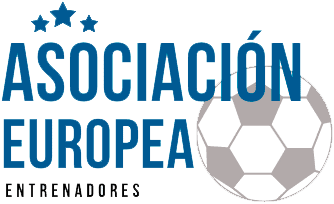You will have the opportunity to perform, voluntarily, your internships in different clubs in Barcelona.
Enroll
Course endorsed by:

In collaboration with:

Contenido
Presentación
Performance in sports activities is directly linked to various factors, and not only physical, but is the combination of behavioral and attitudinal elements that, together with good organic condition, allow for high-level empowerment. With our Master in Coaching and Sports Psychology, You will obtain the tools to help the athlete control the cognitive and emotional components that generate stress, and do not allow them to reach the maximum of their abilities.
Psychology in sports It is a practice that has currently gained a lot of strength, because it has demonstrated high effectiveness at all sporting levels. Fundamentally, it is responsible for the study of the actions of the person's body and mind while practicing a sport. All with the aim of enhancing the athlete's internal conditions to maximize his level of performance at the right time.
He Master in coaching and sports psychology is an avant-garde program generated by experts in the area, who combine various competitive and psychological strategies with a view to strengthening the body and mind of sports actors.
Our Master in coaching and sports psychology It is divided into two very well differentiated edges, but which at the same time complement each other.
On the one hand, we have sports psychology whose purpose is to provide the knowledge and strategies so that emotional skills can be enhanced through the training of their cognitive variables. This will allow the athlete to have control and emotional intelligence to cope with personal situations that may compromise their performance.
For its part, coaching applied in sports is responsible for preparing professionals for the optimal selection and application of their physical and behavioral tools. Developing techniques, methods and training that best suit the athlete.
The intention of coaching and sports psychology is to achievethe group cohesion through the personal balance of all those involved in a team. This is why professionals in this career are currently in high demand nationally and internationally, making it a highly sought-after profession.
Objetivos
This Master in coaching and sports psychology has several fundamental objectives intended for the participant to achieve:
]1. ]Acquire all the fundamentals of sports psychology.
]2. ] Promote the necessary concepts about sports coaching, to develop the talent and efficiency of competitors.
]3. ]Consolidate in the participant the necessary skills to face different situations that involve psychological variables in athletes.
]4. ] Promote daily skills in the athletes under your charge.
]5. ]Know and modify the variables that may affect group performance.
]6. ]Study and analyze the different human and emotional constants involved in the competition, to reinforce physical capabilities.
]7. ]Raise the level of consciousness of athletes, to improve them personally and professionally with the application of NLP (neuro-linguistic programming).
]8. ]Master the skills and abilities to build personal and team balance.
In essence, the race seeks to enable the professional to correct personal habits, and promote emotional discipline so that the athlete achieves their maximum level of fitness, overcoming their mental barriers.
The work of ontological coaching in sports is to work hand in hand with sports coaches and the technical team to extend the team's results.
Índice
Module 1- INTRODUCTION TO SPORTS PSYCHOLOGY (6 credits)
- 1.1 Concept and specialty objective
- 1.2 Areas covered within the sport
- 1.3 Psychological needs
- 1.4 The environment and the development of the person
- 1.5 Contexts of sporting life
- 1.6 Personality and its ways of expressing itself
- 1.7- The attitude
- 1.7.1 Moods
- 1.7.2 Influential factors
- 1.7.3 persistence and perseverance
- 1.7.4 The different motivating climates
- 1.8- Behavior
- 1.8.1 Prejudge the environment
- 1.8.2 Aspects of behavior that affect performance
- 1.8.3 Self-efficacy and different theories that influence
- 1.8.4 The goal perspective
- 1.8.5 Mental and behavioral learning capacity
Module 2-THE COACH AND HIS MOTIVING STRATEGIES (6 credits)
- 2.1 Most important concepts that can alter it
- 2.1.1 Motivation strategies
- 2.1.2 Types and style of motivating
- 2.1.3 Problems that may arise when motivating
- 2.2 Performance-related dysfunctions
- 2.2.1 Stress
- 2.2.2 The different contexts of the footballer
- 2.3 Coaching skills at a psychological level
- 2.3.1 Before, during and after matches
- 2.3.2 The types of messages and how to give them
- 2.3.3 The feedback and communication style
- 2.3.4 Sports fatigue
- 2.3.5 Cognitive fatigue and its problems
Module 3- TRAINING PSYCHOLOGY AND TEAM MANAGEMENT (6 credits)
- 3.1 Necessary skills of athletes
- 3.1.2 Anxiety and emotional capacity
- 3.1.3 Negative thoughts that can affect
- 3.2 Resource planning and optimization
- 3.2.1 Strategies to improve the athlete's mind
- 3.2.2 The climates created by the coach
- 3.2.2 Concentration
- 3.2.3 Attention
- 3.3 Keywords
- 3.3.1 Visualization
- 3.3.2 Conditions of athlete preparation
- 3.3.3 The didactics of teaching
- 3.3.4 Prevention of mental exhaustion
- 3.3.5 Control of thoughts
Module 4- ROLE OF A LEADER WITHIN A TEAM (6 credits)
- 4.1 Coach leadership
- 4.1.2 Predict leader behaviors
- 4.1.3 Predict player behaviors
- 4.1.4 Develop self-discipline
- 4.2 The leader and how he motivates
- 4.2.1 Leader profiles
- 4.2.2 Leadership myths
- 4.2.3 Group and role of each player
- 4.2.4 Classification of oneself and how one sees others
- 4.3 Effective group classification
- 4.3.1 Effective equipment characteristics
- 4.3.2 What is a sports group
- 4.3.3 Efficiency characteristics
- 4.3.4 The integrative action of the coach
- 4.3.5 The human being as a psychological process
- 4.3.6 Thinking and problem solving
Module 5- VARIABLES THAT AFFECT GROUP PERFORMANCE (6 credits)
- 5.1 Group management variable blocks
- 5.1.2 Leadership style and coach management
- 5.1.3 Leadership models
- 5.2 Intrapersonal skills that influence
- 5.2.1 Ways of communicating
- 5.2.2 The signs and their importance
- 5.3 Team cohesion
- 5.3.1 Ideological system within the team
- 5.3.2 The structures of cohesion
- 5.3.3 Groups and subgroups
- 5.4 Strategies to increase cohesion
- 5.4.1 Coaching team cohesion
Module 6 - COACH RELATIONSHIP WITH PSYCHOLOGY (6 credits)
- 6.1 Coach advisor
- 6.1.1 Classification of psychological abilities
- 6.1.2 Alternative thinking
- 6.2 Importance of self-esteem and empathy
- 6.2.1 Concepts and personality types
- 6.2.2 Situational and interactionist models
- 6.3 Principles of professionalism
- 6.3.1 Different psychological management roles
- 6.3.2 Most representative current models
- 6.4 Role of the coach
- 6.4.1 Psychological configuration and planning
- 6.4.2 Psychological intervention
- 6.4.3 Resources to be exploited
- 6.4.4 Importance of self-analysis
- 6.4.5 Troubleshooting
Module 7- FUNDAMENTALS OF THE PERSON AND COMMUNICATION (6 credits)
- 7.1 Communication styles
- 7.1.2 Integral person conception
- 7.2 Psychological and social perceptions
- 7.2.1 Self-perception and learning
- 7.2.2 Perceptual distortions
- 7.3 What are emotions?
- 7.3.1 Psychological flexibility
- 7.3.2 The importance of resilience
- 7.3.3 Distance, thoughts and emotions
- 7.3.4 Biological function of emotions
- 7.4 Types of intelligence
- 7.4.1 Emotional development skills
- 7.4.2 Interpersonal intelligence
- 7.5 Psychophysiological performance of emotions
- 7.5.1 Communication emotions
- 7.6 The brain and its parts
- 7.6.1 Functions and location of emotions
- 7.6.2 Hemispheres and responsibilities
Module 8- EFFECTIVE COACHING TOOLS (6 credits)
- 8.1 Coaching and its objectives
- 8.1.2 The competencies that a coach develops
- 8.1.3 Coaching guidelines
- 8.2 Assume responsibility and become aware
- 8.2.1 Belief where the coach moves
- 8.2.2 Prejudices and their importance
- 8.2.3 Coaching methods and styles
- 8.2.4 Factors to take into account
- 8.3 Ways to influence
- 8.3.1 Have accuracy in the process
- 8.3.2 Types of coaching
- 8.4 The 7 skills
- 8.4.1 The most important domains
- 8.4.2 Create contexts
- 8.4.3 Powerful questions
- 8.4.4 Current situation and future situation
- 8.5 Reference frames
- 8.5.1 Coaching for attitude change
- 8.5.2 Useful verbs to search for objectives
- 8.5.3 Learning and its cycles
- 8.5.4 Facilitate learning according to phase
Module 9- CONSTRUCTION OF CONSCIOUS MIND (6 credits)
- 9.1 Thinking skills
- 9.1.2 Damasio states
- 9.1.3 Differences between declarative and procedural knowledge
- 9.1.4 What, therefore, is knowledge
- 9.1.5 Knowledge hierarchies
- 9.1.6 Types of knowledge
- 9.2 Knowledge conversion
- 9.2.1 Analysis of what is known
- 9.3 Approaches to knowledge
- 9.3.1 Forms of learning
- 9.3.2 The wisdom of the coach
- 9.4 Performance ratings
- 9.4.1 Listen and know how
- 9.4.2 Giving and receiving feedback
- 9.5 Athlete psychology evaluation
- 9.5.1 Coach profiles
- 9.5.2 Feedback
Module 10- FINAL WORK (6 credits)
Requisitos
Graduates/Graduates in Physical Activity and Sports Sciences, qualified coaches and technicians with experience in football.
Professionals with recognized and accredited work and/or professional experience, provided that said experience is related to the competencies inherent to the Master's degree, people related to football who want to specialize in this area.
Metodología
This training program will be carried out taking into account the following points:
Virtual classroom: The courses are taught entirely online. They are carried out through our virtual campus which is accessed from the cover of our website, www.futbollab.com, through the button Access to the Virtual Classroom. From there you can access syllabi, explanatory presentations, demonstration videos, teacher analysis, and tasks that the teachers send and correct.
Tutors: The teachers offer continuous tutoring, establishing telephone and/or videoconference tutorials explaining any doubts that may arise. They guide your training evolution throughout the course, depending on your profile and level of dedication or study schedule. As we have indicated, the syllabus, videos, articles, interviews with experts... are part of your evolution in the course, so you will do periodic exercises that are corrected by the teacher to give you the clearest idea of the topic at hand. working.
Assessment: At the end of the course you will carry out a final project that will encompass all the areas studied and that will always involve the development of a real case, since at FutbolLab we want our courses to be directed at all times to the real training situation that the technicians find themselves in. their teams.
Registration process: Step by step video
To register you only have to do click In the Enroll tab, from there you will be asked to enter your personal data necessary for the academic record and in the final part of the process you will be able to choose the payment format for this program.
Remind you that in this course you can go at your own pace and do it according to your availability, as long as you do not exceed the maximum time to do it, which in the case of master's degrees is 2 and a half years, 18 months for Expert or Technical courses and 7 months for courses that are not in these categories.
It is plenty of time to do it, if you still need more time, you must ask the admissions department for authorization to extend a time. If you get a positive response, the new agreed time will be automatically extended.
You can contact us via email at attention@futbollab.com, by telephone at +34 93438 6000.
Our website www.futbollab.com
If you prefer direct communication via WhatsApp, Click here
Créditos
This master's degree is issued by the Florida Global University and has 60 ECTS Credits ( 1500 teaching hours).
Information
Do you have any doubt? You can check our section frequent questions, download the Course program or fill out the following form and we will contact you.

